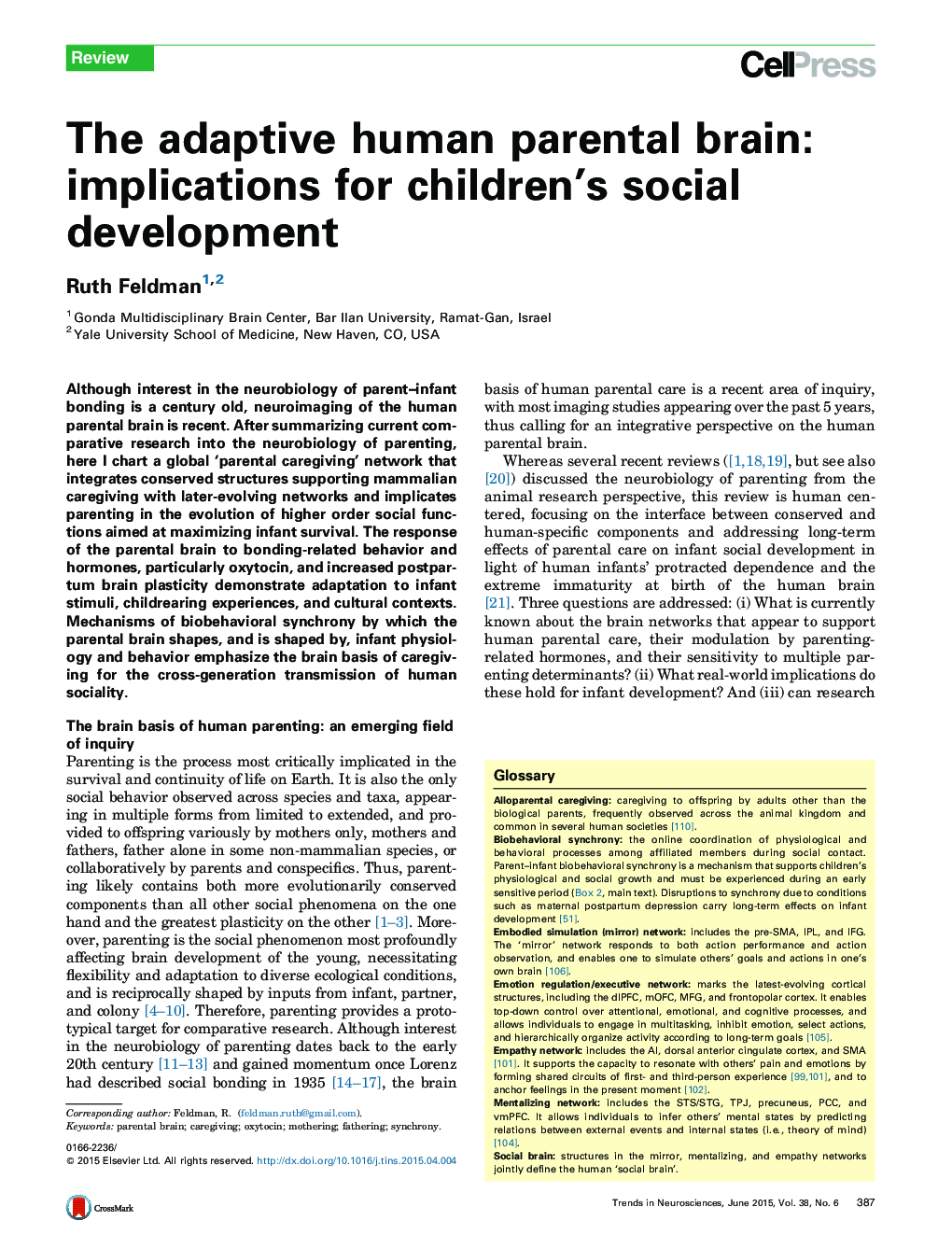| کد مقاله | کد نشریه | سال انتشار | مقاله انگلیسی | نسخه تمام متن |
|---|---|---|---|---|
| 4354122 | 1299015 | 2015 | 13 صفحه PDF | دانلود رایگان |
• The parental caregiving network integrates core limbic with cortical sociocognitive networks.
• Human parental brain is characterized by plasticity, uniquely expressed in mothers and fathers.
• Nodes of the parental brain are related to mothers’ and fathers’ hormones and interactive behavior.
• Links of parents’ brain with oxytocin and synchrony support long-term effect on infant social growth.
Although interest in the neurobiology of parent–infant bonding is a century old, neuroimaging of the human parental brain is recent. After summarizing current comparative research into the neurobiology of parenting, here I chart a global ‘parental caregiving’ network that integrates conserved structures supporting mammalian caregiving with later-evolving networks and implicates parenting in the evolution of higher order social functions aimed at maximizing infant survival. The response of the parental brain to bonding-related behavior and hormones, particularly oxytocin, and increased postpartum brain plasticity demonstrate adaptation to infant stimuli, childrearing experiences, and cultural contexts. Mechanisms of biobehavioral synchrony by which the parental brain shapes, and is shaped by, infant physiology and behavior emphasize the brain basis of caregiving for the cross-generation transmission of human sociality.
Journal: - Volume 38, Issue 6, June 2015, Pages 387–399
